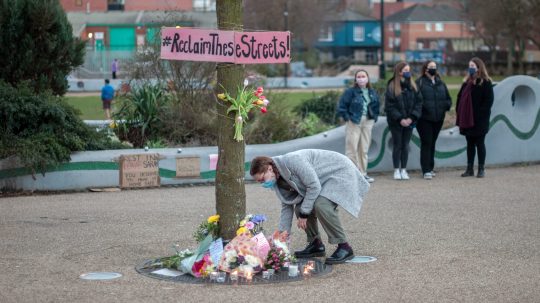A consultation has been launched which could determine whether public sexual harassment could become a criminal offence in the UK.
The government has launched a consultation to hear from organisations and local government about whether a specific offence for public sexual harassment should be created. Public sexual harassment is a form of sexual harassment that takes place in public spaces. While sexual harassment is recognised as unlawful under the Equality Act 2010, public sexual harassment is not currently recognised as a form of discrimination.
Sexual harassment is any kind of unwanted behaviour of a sexual nature that makes you feel humiliated or intimidated, or that creates a hostile environment. Some forms of sexual harassment are already acknowledged as being unlawful in UK law as it is a form of discrimination under the Equality Act 2010.
The Home Office define public sexual harassment as: “When someone is shouted at in the street, or followed, or is given a rude gesture or is touched by a stranger.”
According to the Home Office’s consultation paper: “The Government think that public sexual harassment is already covered in [existing] laws so it doesn’t need a new separate law. But they could add public sexual harassment onto an existing law. So if someone harasses another person because of their sex, then they could get a bigger sentence.”
What would a new law look like?
The consultation asks whether or not a specific criminal offence of public sexual harassment should be created and if such an offence were to be created, what it should look like.
Charities and organisations focused on crimes which disproportionately affect women and girls (including organisations focused on male victims of those crimes) will be consulted on the matter. The consultation will also explore whether the government should take additional non-legislative actions to tackle public sexual harassment (either instead of or in addition to a new criminal offence).
According to figures published by the Office for National Statistics (ONS) in March 2022, one in two women aged between 16 and 34 years experienced one form of harassment in the previous 12 months.
The ONS also found that 38% of women aged between 16 and 34 have experienced catcalls, whistles, unwanted sexual comments or jokes, and 25% have felt that they were being followed.
Our Streets Now
Hundreds of women, girls and marginalised genders went online to share their stories of harassment and abuse. Our Streets Now quickly became a community which has campaigned for public sexual harassment to be made a criminal offence.
The movement teamed up with global children’s charity Plan International UK, under an official partnership, to call on Parliament to make public sexual harassment a specific criminal offence.
A spokesperson for Our Streets Now stated: “Despite the shocking frequency of public sexual harassment, girls have repeatedly told us that they don’t know where to report it.”
They continued: “Currently, it’s not even illegal. We’re here to change that. Alongside Plan International UK, we’re calling on the UK Government to make public sexual harassment a criminal offence.”
This legislative change is not only desirable but necessary – for the UK to create the protective framework to comply with its international treaty obligations, and for girls and women as a further critical step toward gender equality and social justice.
Under Article 5 and 40 of the convention on the Elimination of All Forms of Discrimination against Women (CEDAW), the UK Government is required to take steps to tackle all forms of sexual harassment.
Speaking about any potential legislation, The Home Office stated: “We need to ensure, in creating any criminal offence, that it is drafted so as to be enforceable. Any new offence needs to enable law enforcement agencies to tackle this behaviour, rather than create confusion or additional evidential burdens for investigators and prosecutors.”
The consultation is due to close at 11:59 pm on 1 September 2022.





